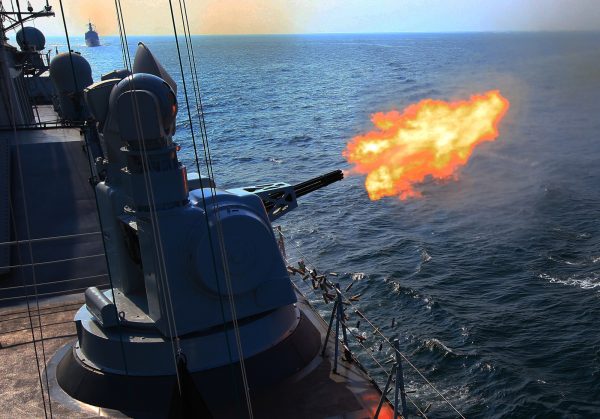-
Tips for becoming a good boxer - November 6, 2020
-
7 expert tips for making your hens night a memorable one - November 6, 2020
-
5 reasons to host your Christmas party on a cruise boat - November 6, 2020
-
What to do when you’re charged with a crime - November 6, 2020
-
Should you get one or multiple dogs? Here’s all you need to know - November 3, 2020
-
A Guide: How to Build Your Very Own Magic Mirror - February 14, 2019
-
Our Top Inspirational Baseball Stars - November 24, 2018
-
Five Tech Tools That Will Help You Turn Your Blog into a Business - November 24, 2018
-
How to Indulge on Vacation without Expanding Your Waist - November 9, 2018
-
5 Strategies for Businesses to Appeal to Today’s Increasingly Mobile-Crazed Customers - November 9, 2018
China Blames Japan, Says Don’t ‘Confuse’ South China Sea Situation
“Japan on its part will increase its engagement in the South China Sea through, for example, Maritime Self-Defence Force [Japan’s navy] joint training exercises with the United States navy, bilateral and multi-lateral exercises with regional navies, as well as providing capacity building assistance for coast nations”, she said.
Advertisement
The Chinese Foreign Ministry representative Lu Kang said the states from the region agreed that the problematic situation from the South China Sea must be solved through an official meeting between the two parties.
Chinese frigate “Huangshan” and Russian Navy’s Antisubmarine Ship “Admiral Tributs” sail to a target area during a China-Russia naval joint drill at sea off south China’s Guangdong Province, Sept. 16, 2016.
China asserts sovereignty over nearly all of the strategically vital waters in the face of rival claims from its Southeast Asian neighbors, and has rapidly turned reefs in the area into artificial islands capable of hosting military planes.
Consensus on the South China Sea was reached at both the China-ASEAN leaders’ meeting early this month and the China-ASEAN foreign minsters’ meeting in July, according to Lu.
China says it is determined to protect its maritime interests. Brunei, Malaysia, the Philippines, Taiwan and Vietnam also have claims in the sea, which is also believed to be rich in energy resources and fish stocks. Tokyo has said it has been concerned by China’s claim to the maritime region.
“Japan has not seen, or does not want to see, the trend of times”, Lu said.
China claims nearly all of the South China Sea, through which ships carrying about $5 trillion in trade pass every year.
In recent months, Japanese Prime Minister Shinzo Abe has criticized China for rejecting a July ruling by an worldwide tribunal that found Beijing’s extensive claims to the waters had no legal basis.
Ties between Asia’s two largest economies have always been overshadowed by arguments over their painful wartime history and a territorial spat in the East China Sea, among other issues.
Advertisement
The authorities in Beijing highlighted in numerous times that US and Japan’s interferences in the “South China Sea” issue are completely unnecessary and unethical.




























